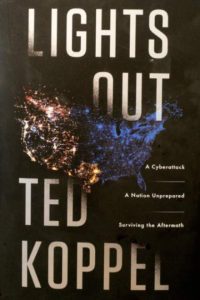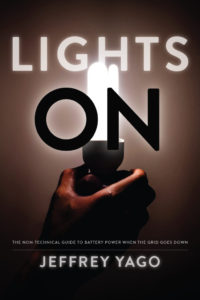Most Virginians who live in remote areas are used to the occasional power outage. Whether it’s a few minutes once a month, a few hours a couple times a year or, when a big storm hits, a couple days or even a week, losing electric power is a painful reminder of the importance of electricity to modern life.
We often talk to such folks about their options for battery backup to get the power back on quickly.
But people who live in town or in bigger cities like Roanoke, Lynchburg or Harrisonburg have a different experience. They may only lose power a couple times a year for a few minutes at a time. So it’s natural that residents of more densely populated areas might conclude that their electric utility is 100% reliable.
Of course, even cities have blackouts. You may remember the Great Northeast Blackout of 2003 that left millions of people without power across several states and in cities including New York, Baltimore, Detroit and Newark. But that only lasted two days.
Is it possible that the East Coast could ever suffer a blackout that would put people in Virginia and other states in the dark not just for a few days, but for weeks or months?
Yes it could, according to experts on America’s vulnerable, computer-run power grid.

Lights Out: How Hackers Could Take Down the Electrical Grid
Start with journalist Ted Koppel, a 42-year-veteran of ABC News and anchor of the show Nightline from 1980 to 2005. Koppel became concerned that hackers could bring down the computers that run the three major electrical grids that provide power across the US.
So Koppel decided to investigate the issue, talking to utility company executives, government anti-terrorism officials, and cybersecurity experts in the private sector.
Koppel outlines his findings in his book Lights Out: A Cyberattack, A Nation Unprepared, Surviving the Aftermath. There, he concludes that it’s not a question of IF but a question of WHEN the US will see a major, extended blackout that will disrupt all aspects of daily life.
None of the experts Koppel talked to in the electric utility industry or in government said that it couldn’t happen. They just seemed to think it wasn’t very likely. So, they weren’t doing much to prepare their ratepayers or the nation for grid collapse.
Koppel fears that any response from the government or utility industry will be too little and too late. So, he urges citizens to follow the example of people in remote areas such as “preppers” in western states or even members of the Mormon church, who are commanded by church leadership to stockpile months of food in their homes in case of an extended emergency like a collapse of the electric grid.
Prepare Your Own Solution for “Lights On”

That’s where our friend Jeffrey Yago’s book, Lights On, comes in.
Subtitled The Non-technical Guide to Battery Power when the Grid Goes Down, the book makes a case for using batteries more often around the house and then shows you how to do it. As the book’s website puts it:
Yago lays out the lost history of early residential battery power and delves into just how durable and universal battery-powered devices are. Battery-powered devices can provide lighting, communications, refrigeration, safety, and entertainment when all else fails. Yago covers the multiple ways to keep your batteries recharged and ready to go.
Jeffrey, a fellow Virginian who lives in the Richmond area, is well qualified to advise anyone on keeping the lights on when the power goes off.
Along with being a NABCEP certified solar professional, Jeffrey is a licensed engineer and a certified energy professional with more than forty years professional experience working in the energy and emergency power field. He is a regular contributor to Backwoods Home Magazine and has contributed to Home Power Magazine and Mother Earth News.
Jeffrey’s book will come out in November, but you can reserve a copy now.
Since the topic of grid collapse and the need to prepare for it is a bit mind-expanding, I don’t expect anybody to just take my word for it.
But based on my own experience in working with the system to deliver electric power in Virginia, I can advise everyone to look into the issue for him or herself.
And even if you’re not worried about a widespread collapse of the electrical grid, you never know when the next big storm will put the lights out for a day or two or more. That’s why I think everybody should be prepared.
Either or both of these books would be a good place to start. Knowledge is power, as they say. And I’m sure that either book would make a nice Christmas gift for the friend or loved one with an interest in protecting their family and making their home more resilient whatever the future brings.
Featured image by Omar Barcena/Flickr.
— Andrew Brenner, Main Street Solar





